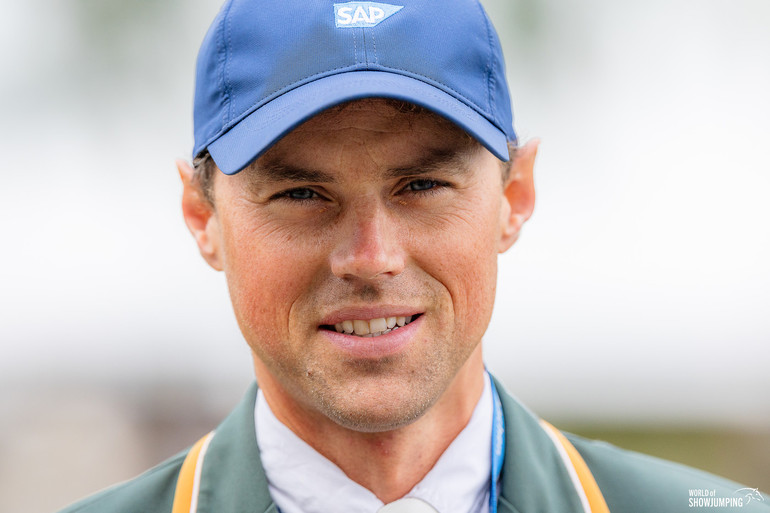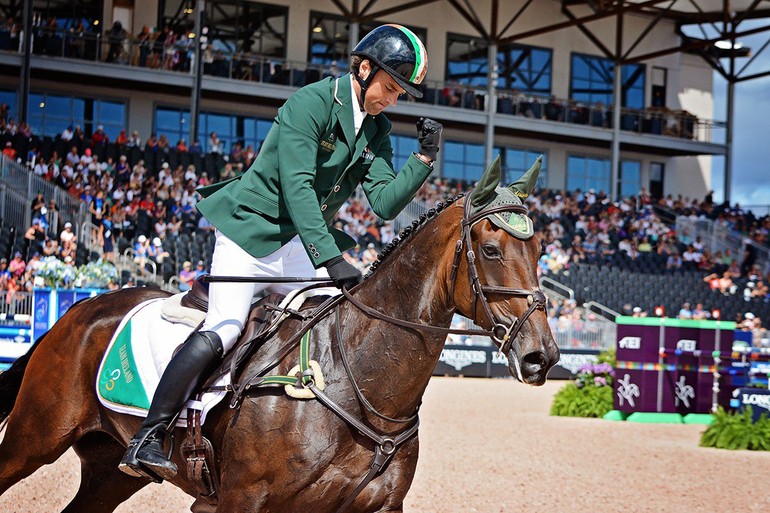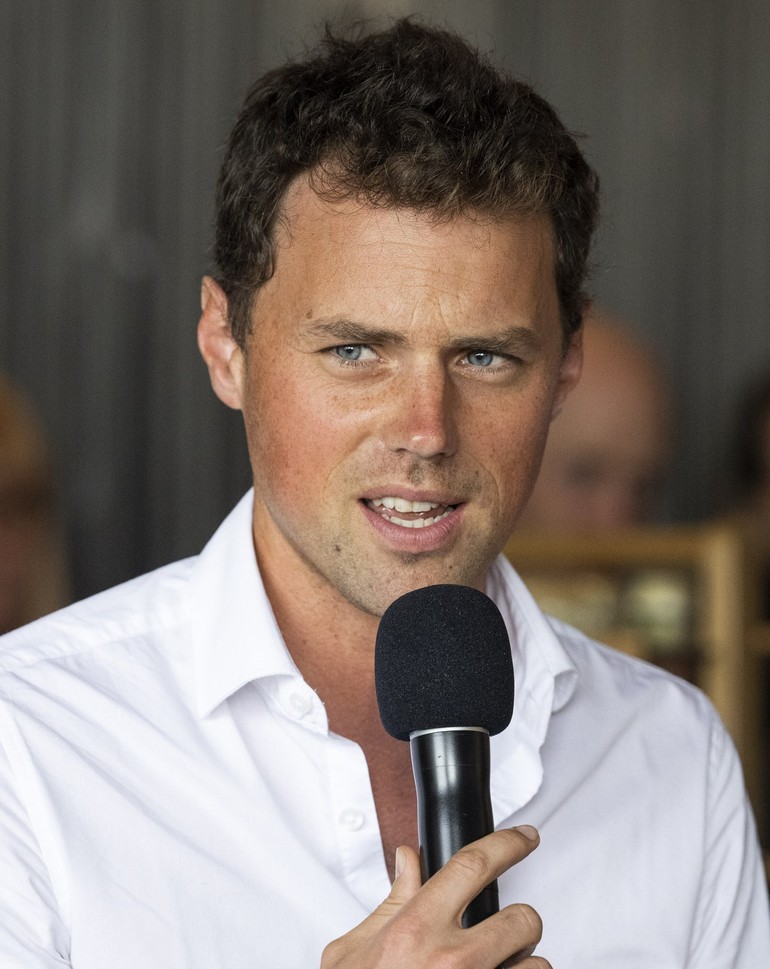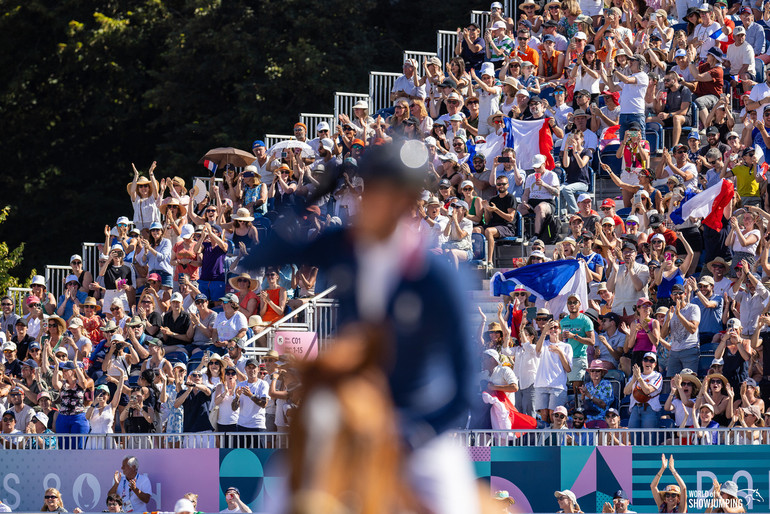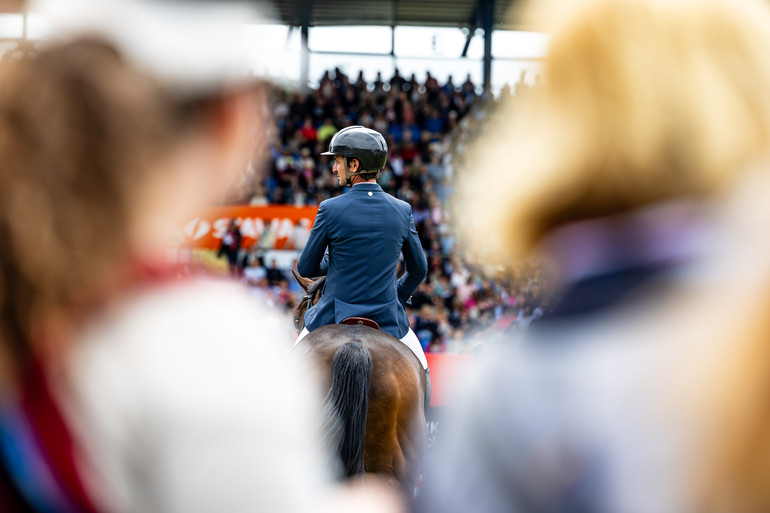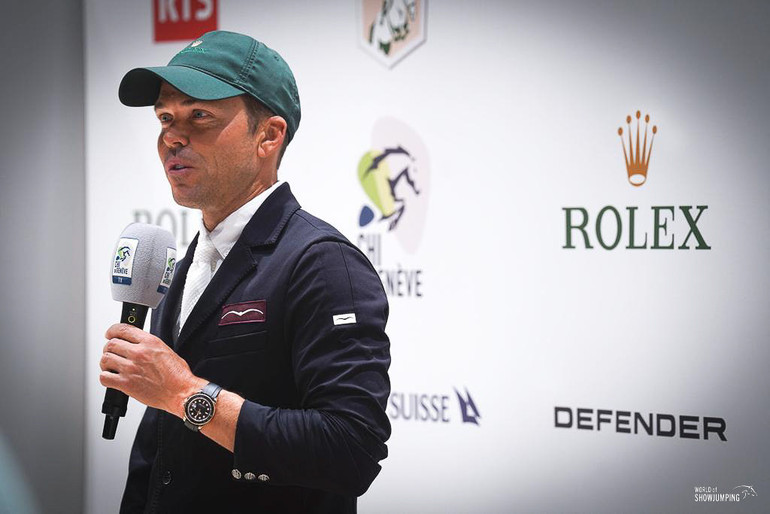Text © World of Showjumping
“I think that if you ask those who govern the equestrian sport about the biggest challenge facing it, they would say it is the social license to operate,” Sam Watson tells World of Showjumping. “However, I would say that we are not engaged enough on the good aspects. Every sport has issues and difficulties, but that shouldn't become the forefront of your strategy. That is your defense, but what is your offense – your growth strategy?”
The 38-year-old eventer has been a part of the Irish team at eleven senior championships. He competed at the 2021 Olympic Games in Tokyo and has a team silver from the 2018 World Equestrian Games in Tryon. Before focusing full-time on horses, Watson studied management science and information systems, and has combined his love for numbers and tech with his passion for performance by creating Equiratings – a company he started in 2015.
“Managing negativity is a protection strategy and we seem to be only focused on protection,” Watson points out. “Talking about the welfare of the horses all the time and trying to frame it positively can be a good thing to do, but it shouldn't be the only thing – because then you are leading with the negative. Instead, we should have good conversations, focus on the sport, the competition and the action in a positive way. At the moment, it seems to me that the equestrian sport is really concentrating on surviving, when we should focus more attention on thriving as well.”
Passion for performance
Facts and figures create engaging storytelling, in addition to helping a wider audience understand equestrian sport and high-performance teams in their selection procedures. “I started Equratings because there just wasn’t enough information and no way to measure performance,” Watson explains.
What I set out to do, was measure performance and then manage performance accordingly
“As an athlete, you need more information than simply one set of results to see how you are doing. Particularly in eventing – where you have to consider dressage, jumping and cross country – experience, consistency, reliability and quality of performance play a huge role,” he points out. “We see this clearly in showjumping as well: Winning one competition is not the same as winning another due to the quality of competitors. I knew all this and when talking to people in the sport, everyone understood that winning at Aachen is not the same as winning another five-star 1.60m class. However, there was no measurement to be found, no numbers that reflected this and I knew there should be; because it is all measurable.”
“What I set out to do, was measure performance and then manage performance accordingly,” he continues. “That was the heart of the company eight years ago. We started working mainly with high-performance teams in eventing, but ended up tracking not only good performance to see who wins, but bad performance also, to focus on risk management and see if people actually should be competing at a certain level. Then we started thinking about the storytelling of the sport, the public and fan engagement.”
Not every number matters
However, not every number matters – and Watson has focused on producing data that does. “You can measure anything, but a number of clear rounds, or even a clear round percentage, what does it really mean?” he points out. “Many statistics and a lot of information can be meaningless, and therefore we have designed algorithms that actually mean something because they are good predictors of performance. From my side, it is about predicting the metrics that matter most, but from the fan engagement side it is actually about making the sport matter – being able to understand and appreciate performance. It helps if you can quantify and measure performance, if you can show in numbers how good a horse or a rider is. Being able to actually measure performance, you then have more stories to tell. If you give people the right information, they can understand and appreciate our sport and become obsessed with it – and that is what we are trying to do.”
If you give people the right information, they can understand and appreciate our sport and become obsessed with it – and that is what we are trying to do
“For me, a number only matters if it has a predictive value; we are talking about quantifying past performance,” he continues. “As an example, I have been to 11 championships – but does it matter when you are predicting success at championships? Do the riders with more championship experience perform better than the riders with less championship experience? You can answer that with data science and we can actually see how much rider experience matters and where it ranks in the key performance indicators.”
“Another point is that of course a horse jumping well at 1.60m level matters, but when we say jumping well, what do we actually mean? You can't just say jumping well means a 100% clear rate because that could be a horse with one clear from one round, or it could be a horse that has done nine rounds and delivered nine clears. Then again, it is not just the number of clears either, because you can have a horse that has jumped 20 rounds at five-star 1.60m with five clears and then there's another horse which only jumped five rounds but was clear every time. Producing numbers that matter is about constantly working on ways to make metrics matter and using numbers that tell you something about future performance.”
Focus on fan engagement
Watson believes that equestrian sport as a whole would benefit hugely if the already wide participation field could be converted into more engagement. “We have a fantastic sport and great participation but we have terrible fan engagement,” he explains. “Most sports are much better on the fan engagement whereas the participation dribbles up. Betting could help with that at a higher level, but I actually much prefer something that is more accessible for children, like simple board games or fantasy games. I would love to have more people – and particularly young people, kids aged from eight to twelve – getting passionate about following the sport. There are probably tens of millions of children around the world riding ponies, but are they watching the top of the sport? In football it is the other way round; there are tens of millions of people watching football that might have never kicked a football. We all participate, there are loads of people in the sport who love horses but they don’t follow the top sport – and we should try to turn this around.”
We have to be able to show why the sport matters
For fan engagement, the first thing you need is a great spectacle. “And we have one of the best spectacles in the world,” Watson says. “Watching people play darts or hit a golf ball is nowhere comparable to watching people ride horses. It is a phenomenal sport and it has such magnetism to it. However, we have to be able to show why the sport matters. Everyone knows that Wimbledon really matters in tennis, but this is where we fail. It can be very difficult to make out which of the many series and competitions are the best and which shows matter the most. The media plays a big role in this. Being able to tell the story in a really accessible way, you need a great spectacle and you have to make it matter – and you need relentless content to get people talking.”
Who is the best across a huge variety of competitions?
How committed riders are to a certain competition is another challenge from a fan engagement point of view. “As an example, prior to the Olympics in the Nations Cup in Rotterdam, everyone was extremely committed because everyone wanted to get selected for Paris,” Watson explains. “However, sometimes riders are picking and choosing and you can nearly say a result might not even matter to them if they are thinking ahead and training – and that is a difficult story to tell. Most Grand Prixs and most Nations Cups people are trying to win, but it is whether they commit to it or not.”
Our job is to talk about the rate of commitment and point out who is the best across a huge variety of competitions
“Our job is to talk about the rate of commitment and point out who is the best across a huge variety of competitions. All these competitors are picking and choosing where they are going to compete, because you can't be at every Nations Cup, and you can't be at every World Cup. I believe we can create a rating that still clearly reflects who is the best across the field. By analyzing the quality of competitors they are competing against and the consistency with which they are doing it, we can create ratings that show that.”
An entertainment industry
“A sport is not an industry,” Watson concludes. “The industry we are in is the entertainment industry: We are trying to sell out arenas for entertainment, and the horses and riders are our cast. The brilliant thing about sport – which makes it better than any other type of entertainment – is the level of uncertainty; no one can leak out the results, because no one knows what is going to happen.”
We should focus on storytelling, and we need the cast to speak; they have to open up so that they can connect with the audience
“We should focus on storytelling, and we need the cast to speak; they have to open up so that they can connect with the audience. If interesting people aren't saying exciting things, people aren't going to get engaged. You can't always be happy either – it is not real, and people don't engage with it. In fact, bad news travel better than good, and therefore we should not shy away from talking about a tough day at the office – from a sport perspective. The economy of the sport is going to benefit if we can sell it better.”
21.8.2024 No reproduction of any of the content in this article will be accepted without a written permission, all rights reserved © World of Showjumping.com. If copyright violations occur, a penalty fee will apply.



